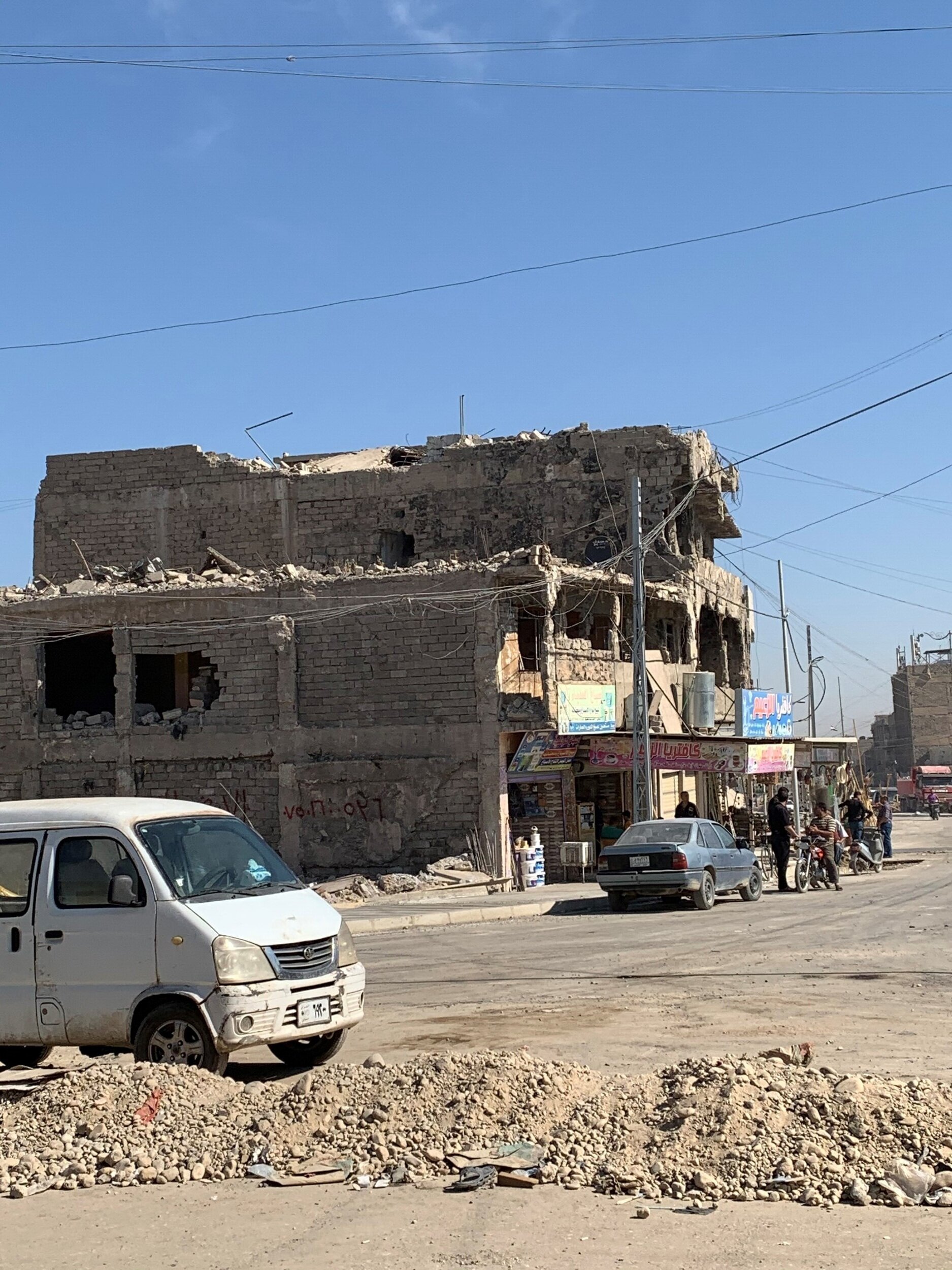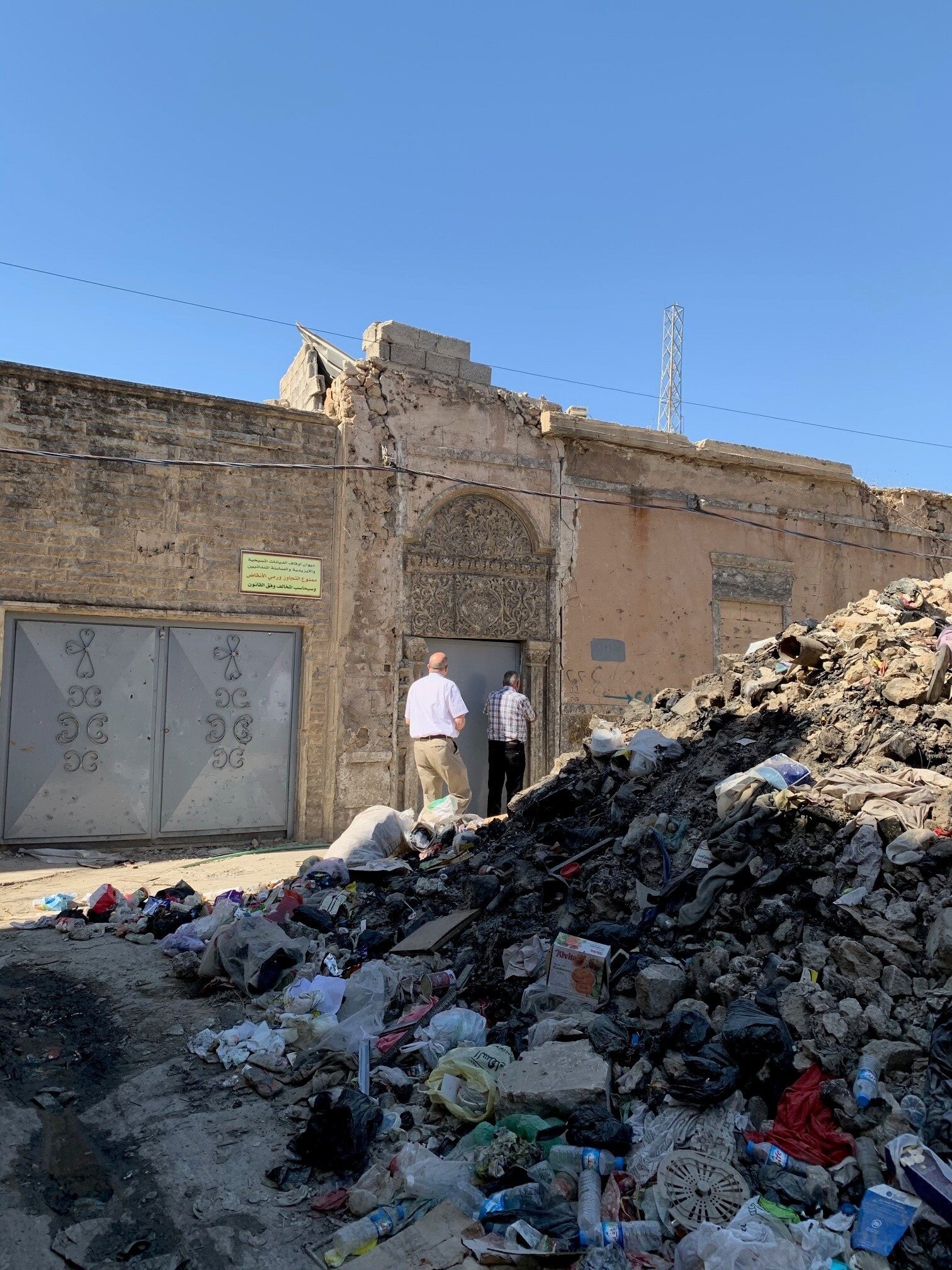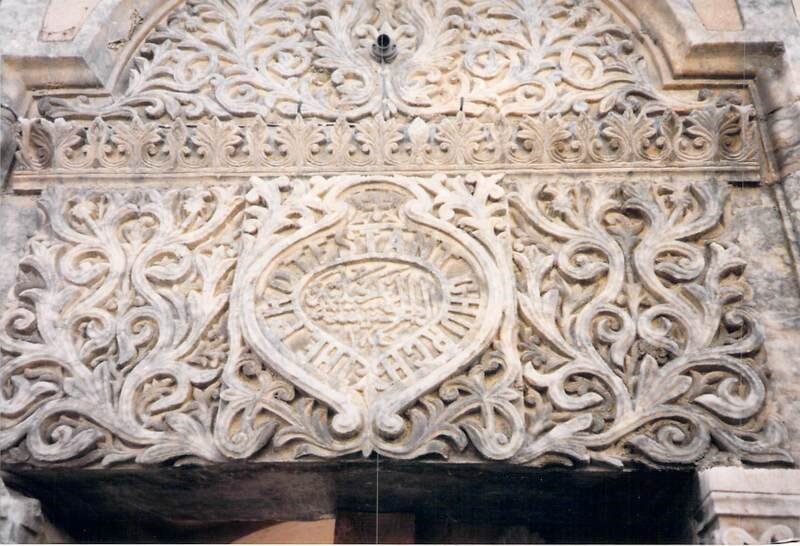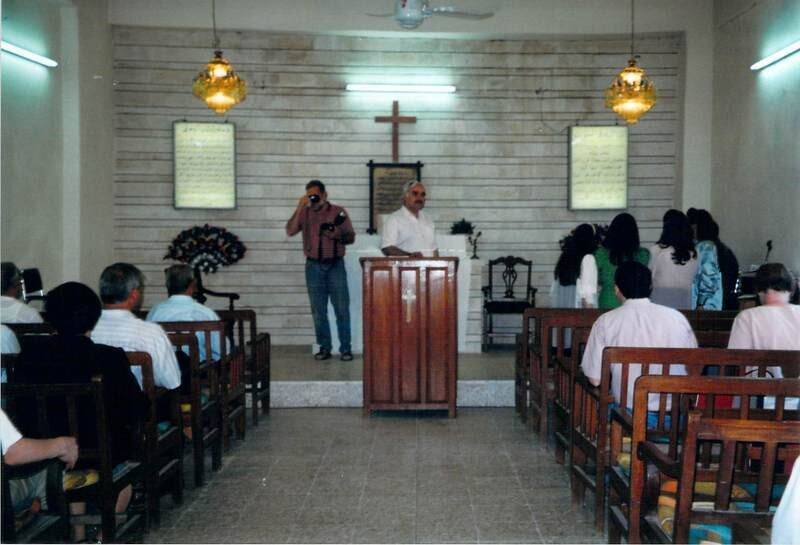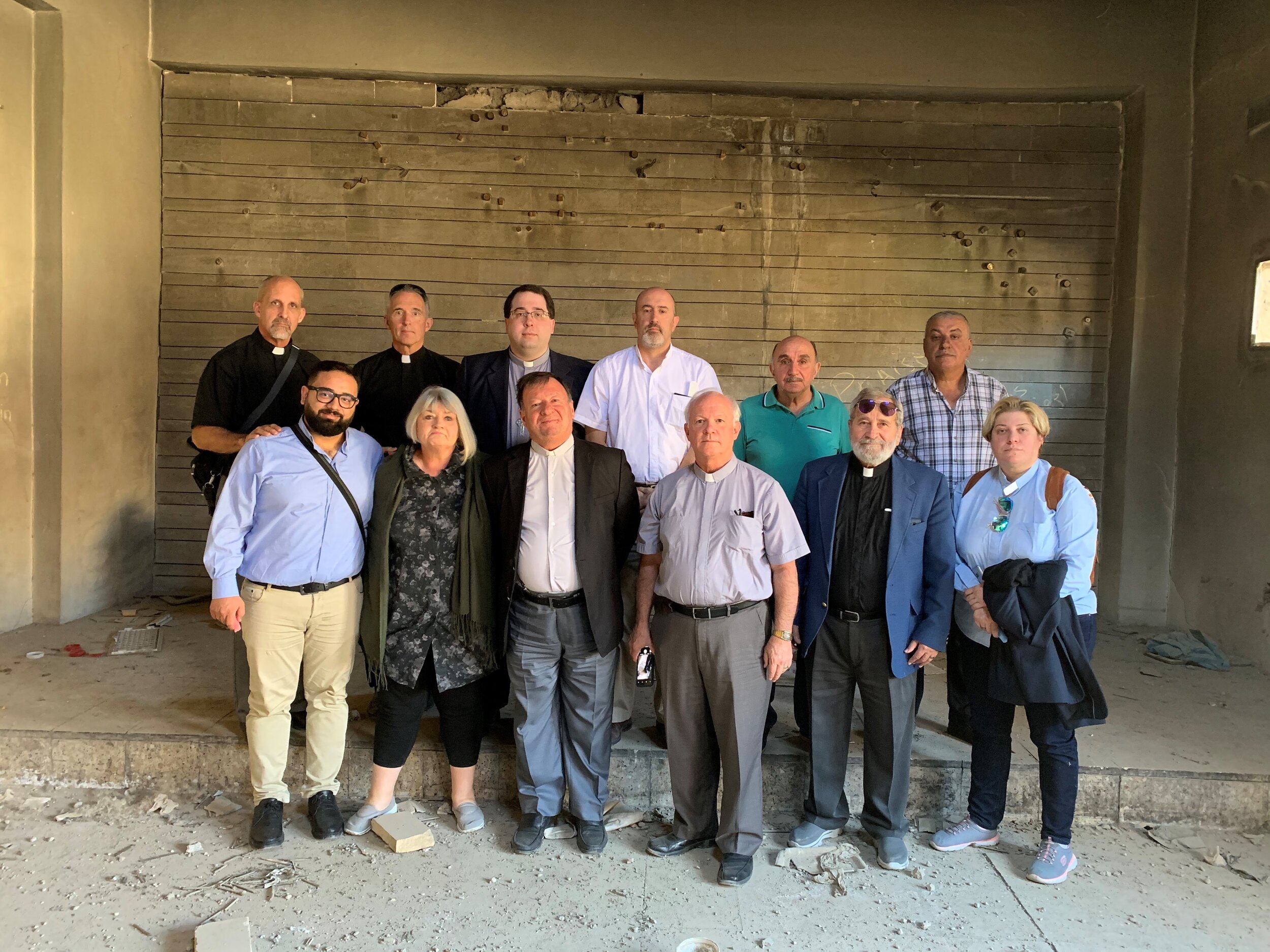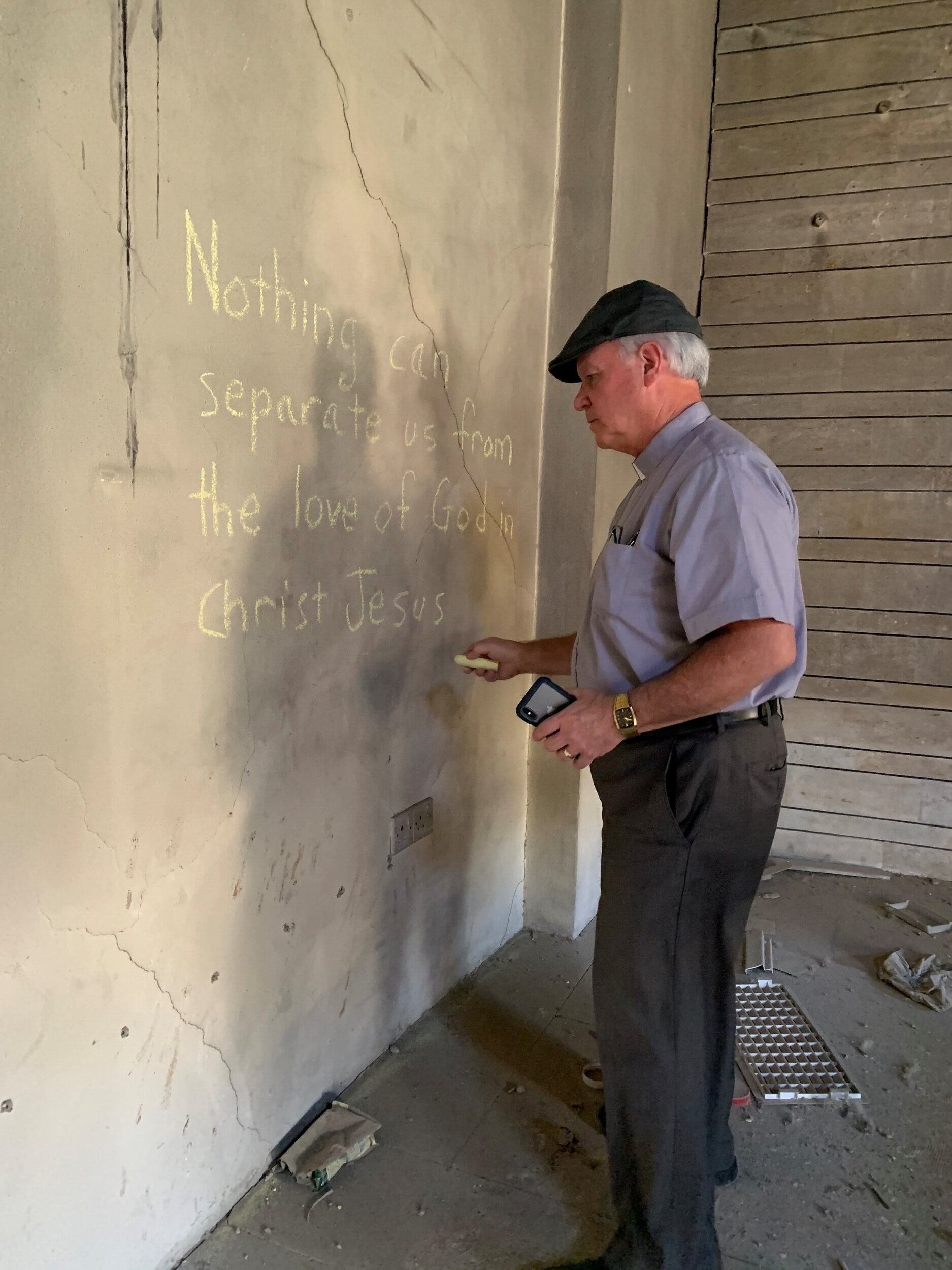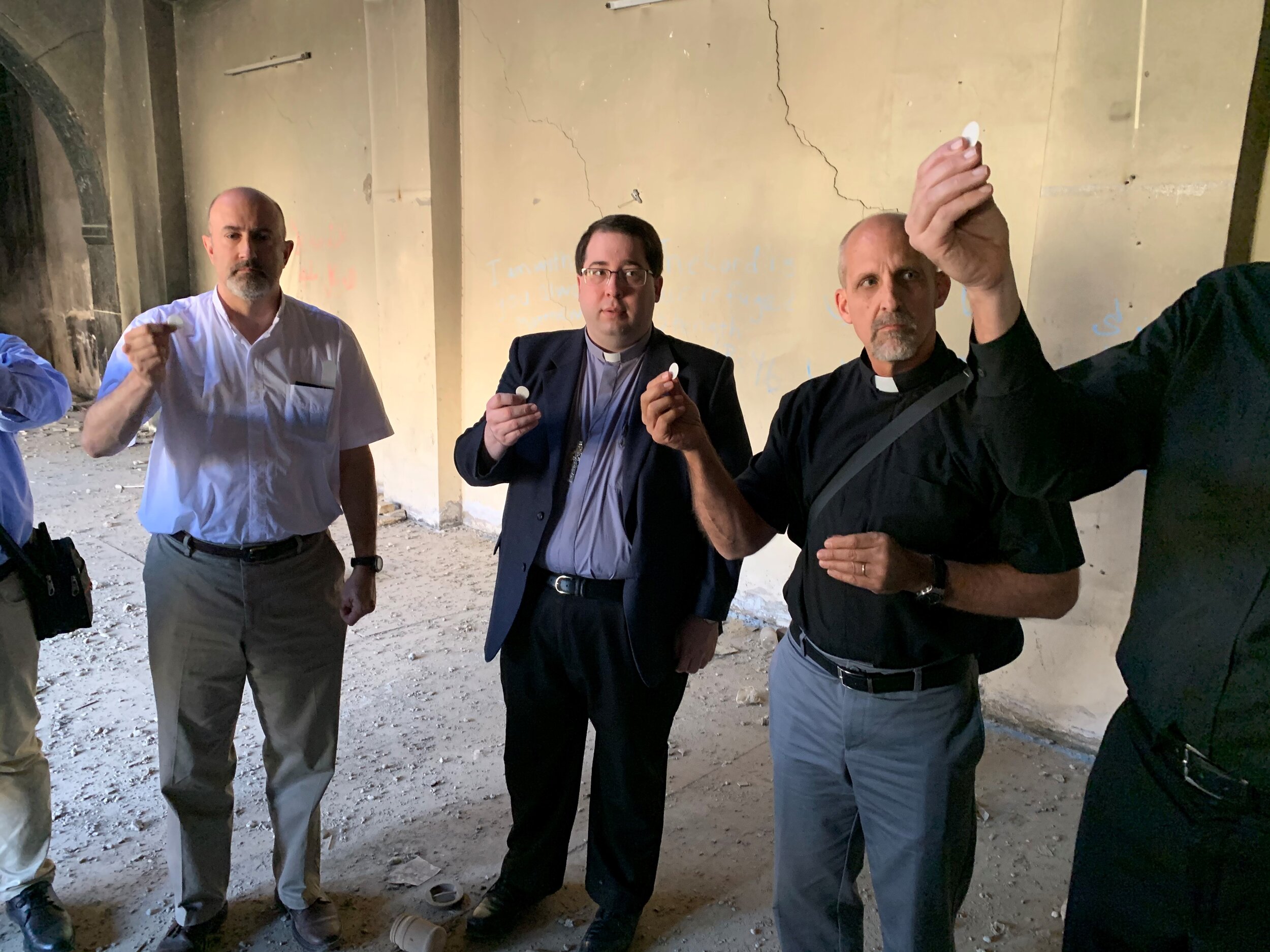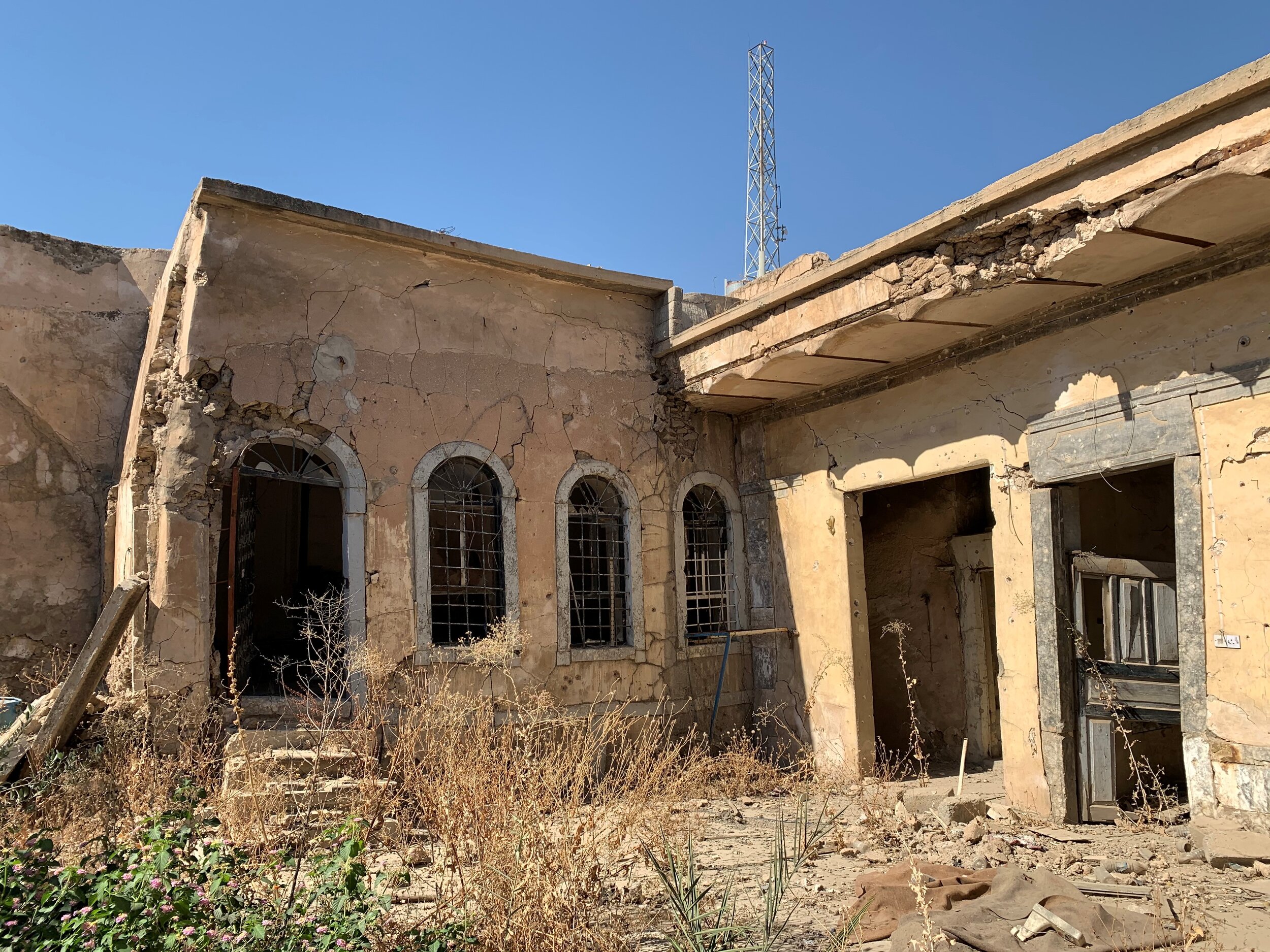Iraq #6: Return to Mosul
by Marilyn Borst
Mosul. The name does not immediately conjure up frightening images for me as it does for most.
Yes, I am well aware of its recent history: of its gradual takeover by fundamentalists when the U.S.-led war in 2003 destabilized Iraq, of the subsequent terror wrought by ISIS upon Christians and moderate Muslims who had called it “home” and the of the “battle for Mosul” which defeated ISIS there but decimated a large part of the historic Old City.
When I hear “Mosul” I think of the Church in that place, specifically the Presbyterian Church there which I first visited in 1998---led on foot through a winding “rabbit warren” of streets---too narrow for cars---to stand in front of an ornate carved doorway in a wall, with my eye drawn upwards to see, in a tear-shaped rondel, the words, in English, “The Protestant Church.” I would later learn that the Arabic writing inside noted its founding: 1840. Indeed, it was the Protestant church in Iraq---there was no other at that time.
I would make 5 trips (between 1998 and 2003) to that small church compound which consisted of an open courtyard faced by a few small rooms and a modest sanctuary before it became too dangerous to go there. I would worship, have coffee with the faithful congregation, and begin to form friendships there….the “usual stuff” of our family-by-faith. This visit, of course, was quite different. Our Outreach Foundation team journeyed into Mosul with partners from Lebanon (Rev. Rola Sleiman) and from Syria (Adon Nouman). We were cautiously and carefully led by Rev. Haitham Jazrawi of Kirkuk, and two Iraqi Presbyterian elders, Amman and Samir, driving down the rubble-filled streets and past the pancaked buildings, where an occasional sign of life was seen in a store, here and there, that had reopened. In front of the large Latin Catholic Church (known as the “Clock Church” because of its tall clock tower) we had to park---a small bulldozer was removing chunks of mortar-split concrete in the street and I was reminded of an article I just read, with news that UNESECO and the U.E.A. would rebuild this historic church. Just a short walk and we turned onto a narrow lane…and I spotted again, after 16 years, that carving over the door: The Protestant Church---we were “home.”
We had come to begin a discernment process with our Iraqi Presbyterian family: should the Mosul Church be rebuilt? Before we had arrived here, Rev. Haitham had been reflecting on this and had to share these thoughts with us:
…The purpose for rebuilding is simple: We firmly believe in our Christ's teaching according to St. Matthew, where our Lord said: "For where two or three gather in my name, there am I with them" ... And while a Church building itself isn't what defines a Church, we (as Iraqi Presbyterians) hold special regard for the place of worship itself -- the Sanctuary in which we serve The Lord's Supper, in which we baptize our children, marry our members, and mourn the loss of our brothers and sisters, the building does matter ... there's a certain comfort that comes with going to the House of the Lord that can't be replicated in home churches or nonconventional places of worship. That's why I believe if the resources allow it, rebuilding the Church would be the right thing to do: It would be an outward and vocal declaration by Iraqi Christians that broadcasts our faith in Christ, hope in the Gospel, and desire to serve our community…
We found the destruction inside the church compound to be extensive but not complete. But we could not dwell long upon that reality because our time was short and we had another focus: to gather in the sanctuary as the Body of Christ and “reclaim” this place for the Kingdom. While Rev. Haitham prepared the elements for communion, the rest of us took chalk to mark the damaged walls with prayers and promises from Scripture. Standing in a circle, we sang (quietly), prayed, and partook of the broken body and shed blood of our Lord. The broken glass, remnants of nails and bits of shattered plaster crunched under our feet as we slipped quietly away. Could this detritus of war still mark Holy Ground in this place? It certainly felt that way to me as I tuned my ear, carefully, to the echo of the faithful whose whispers of creed and confession, praise and proclamation, song and supplication could still be heard in this place…and, might yet be again…

